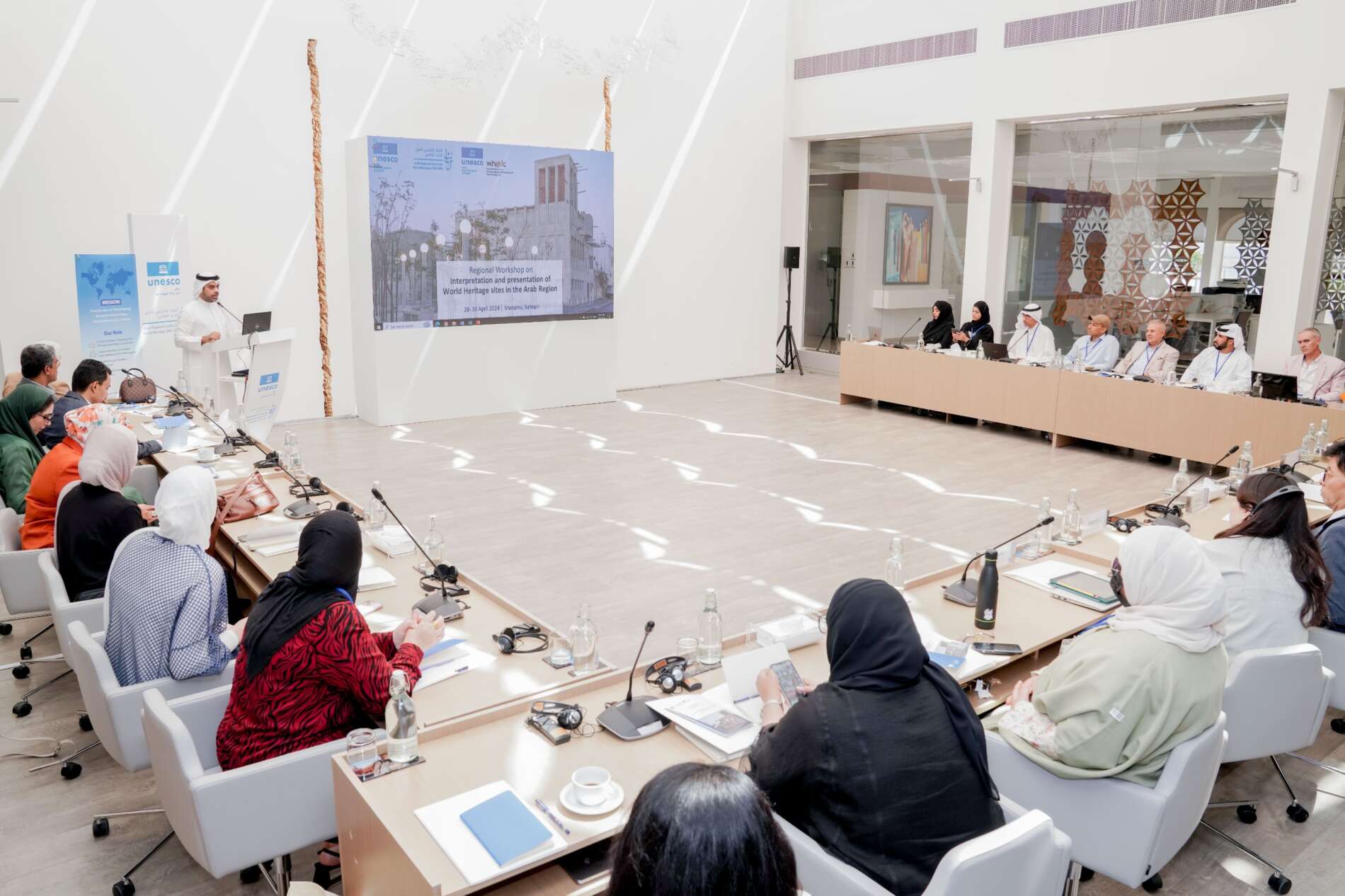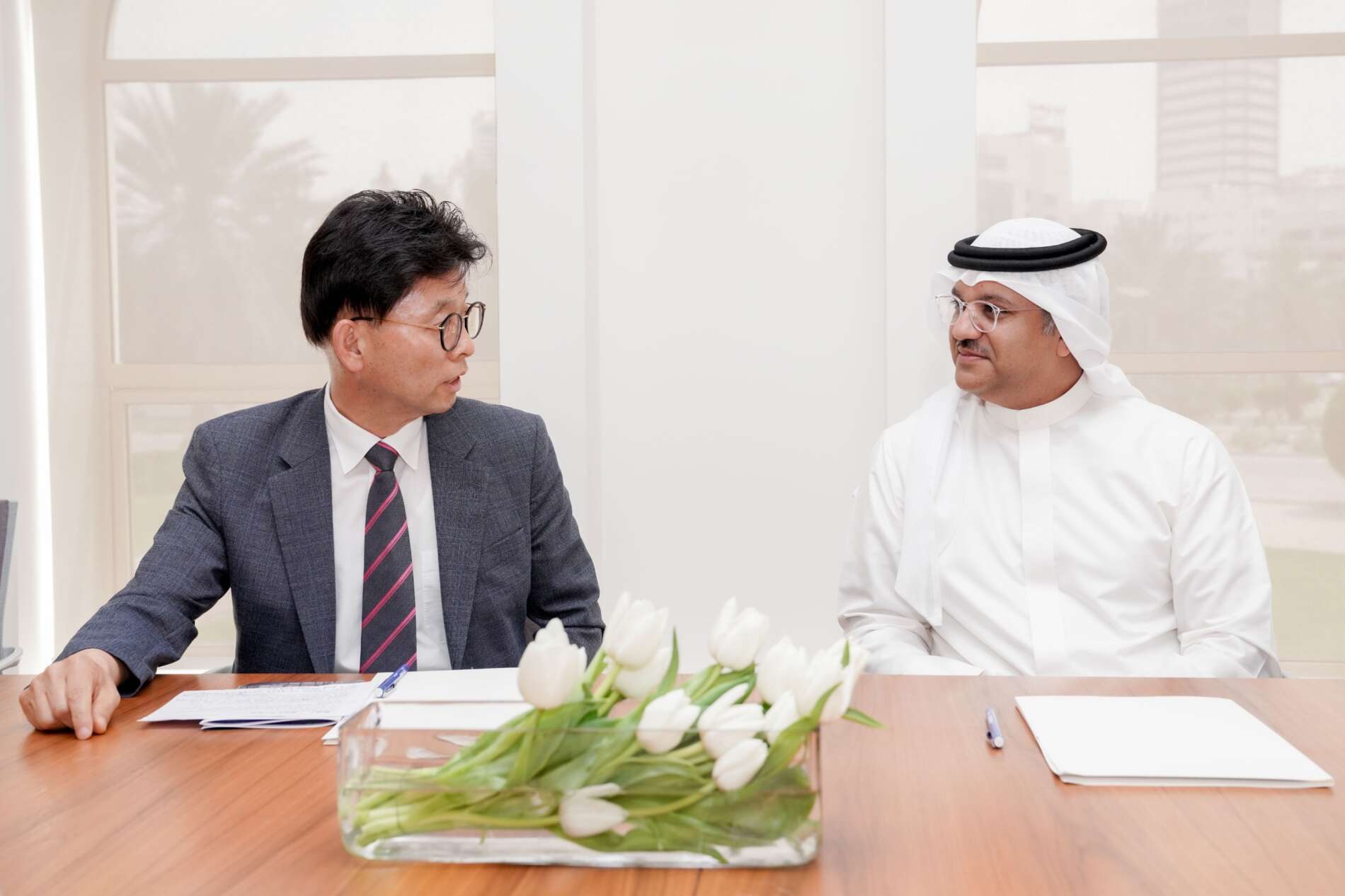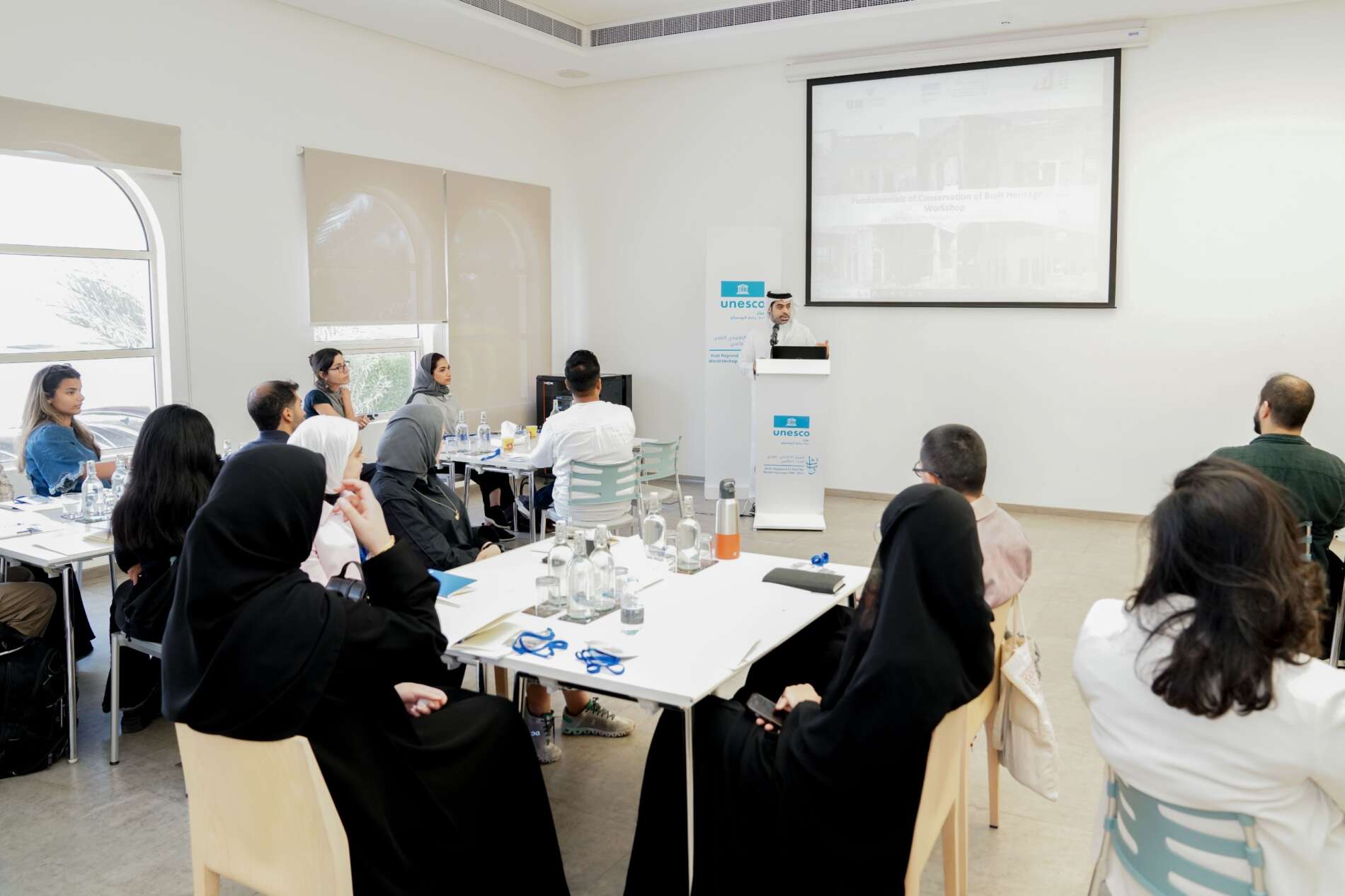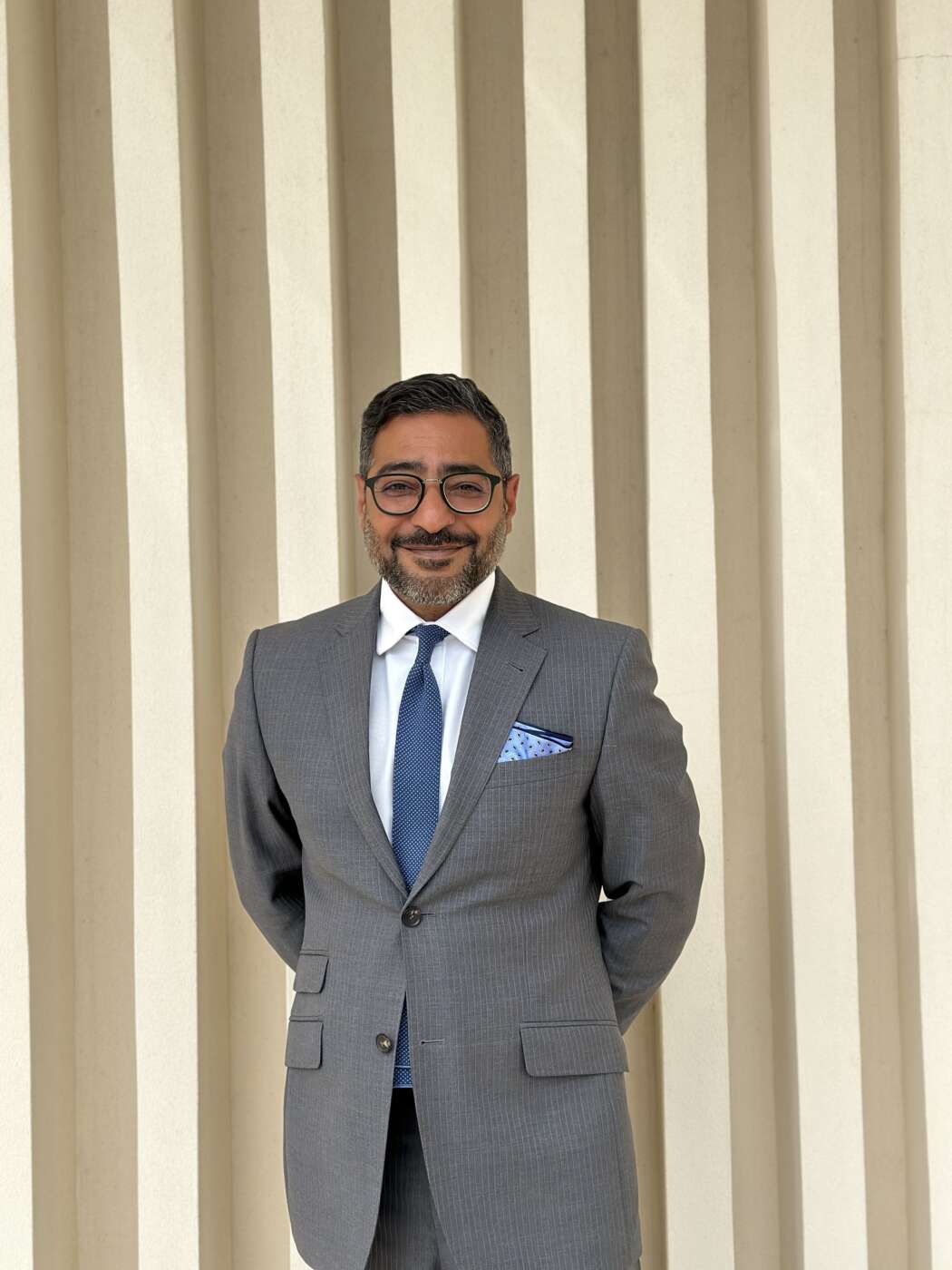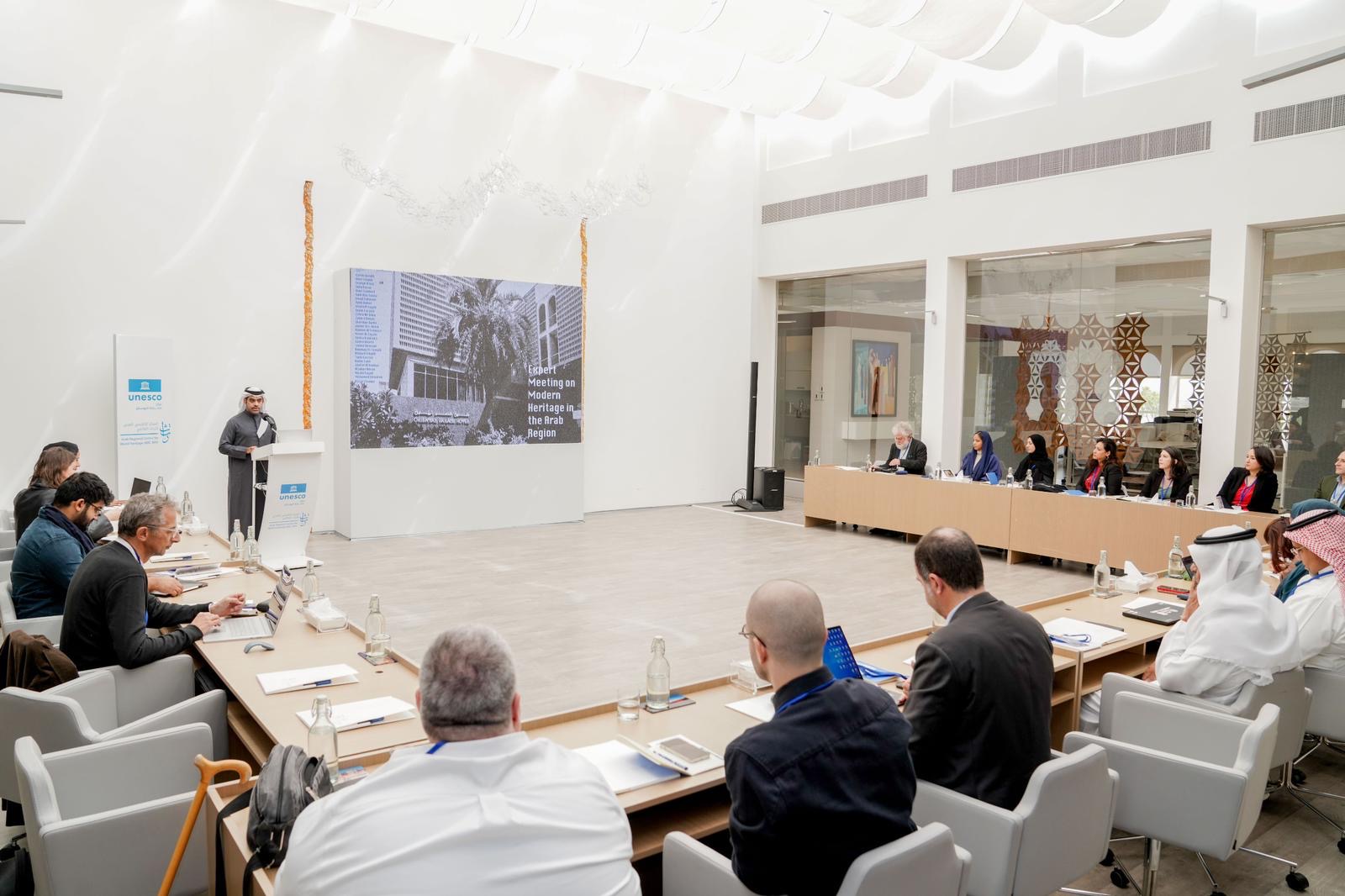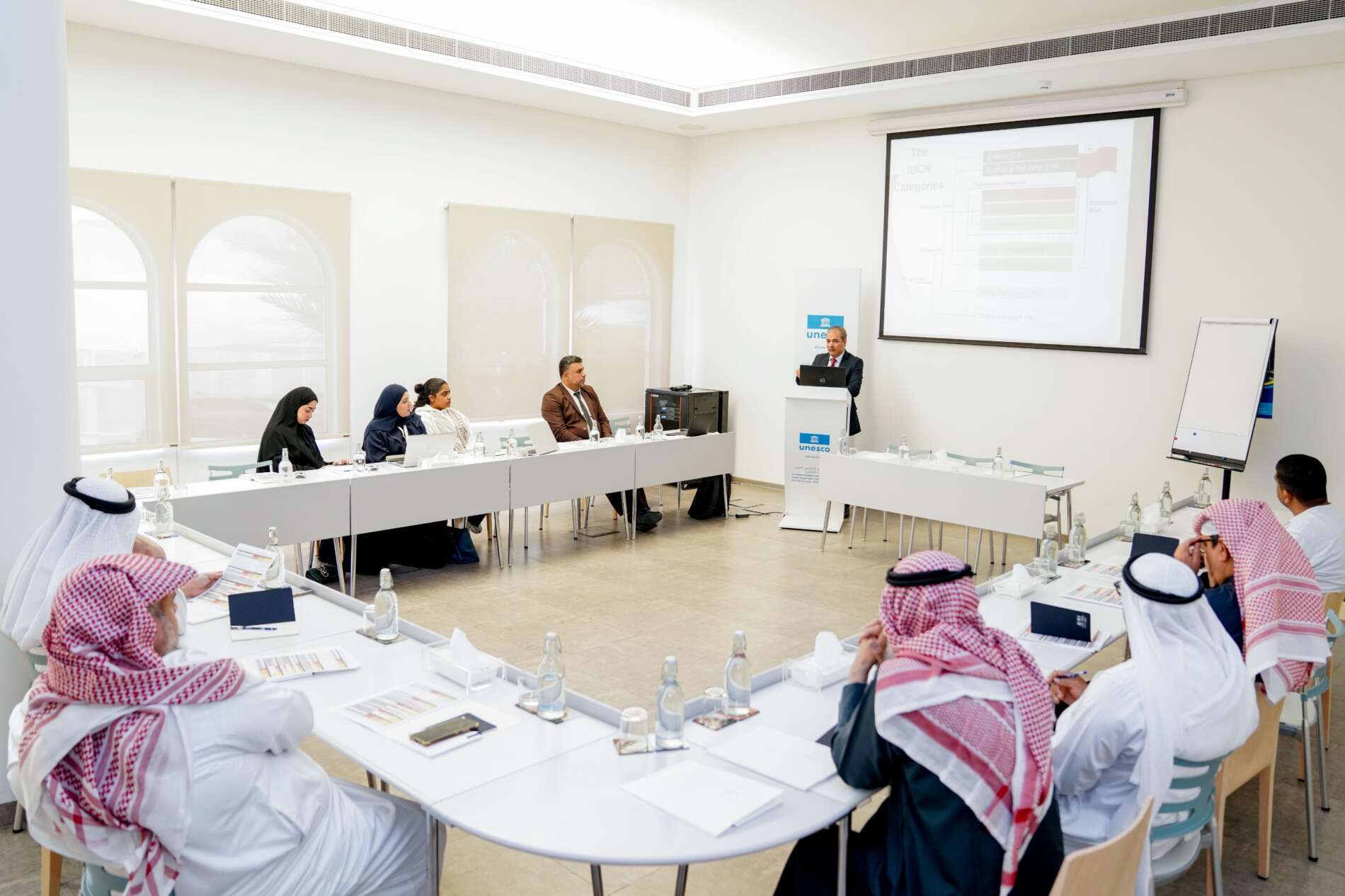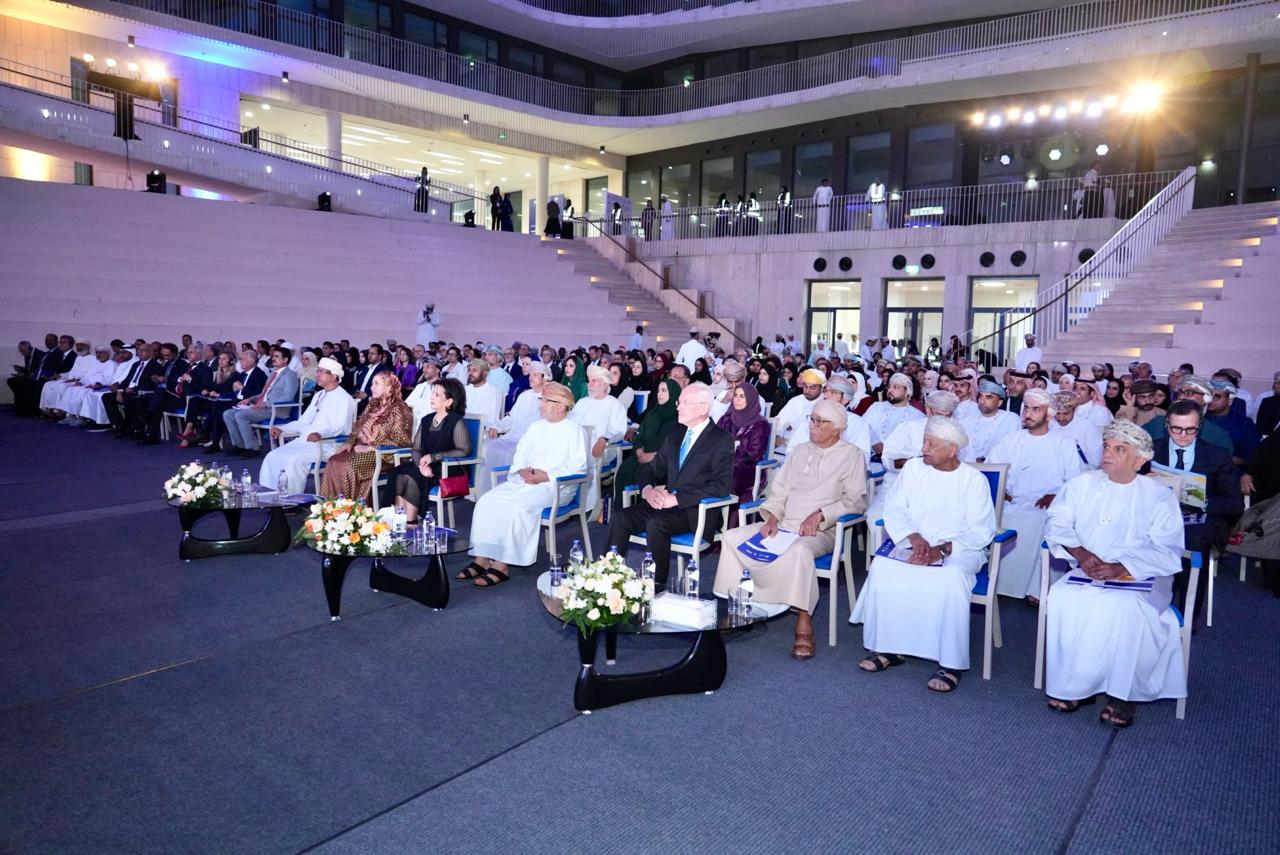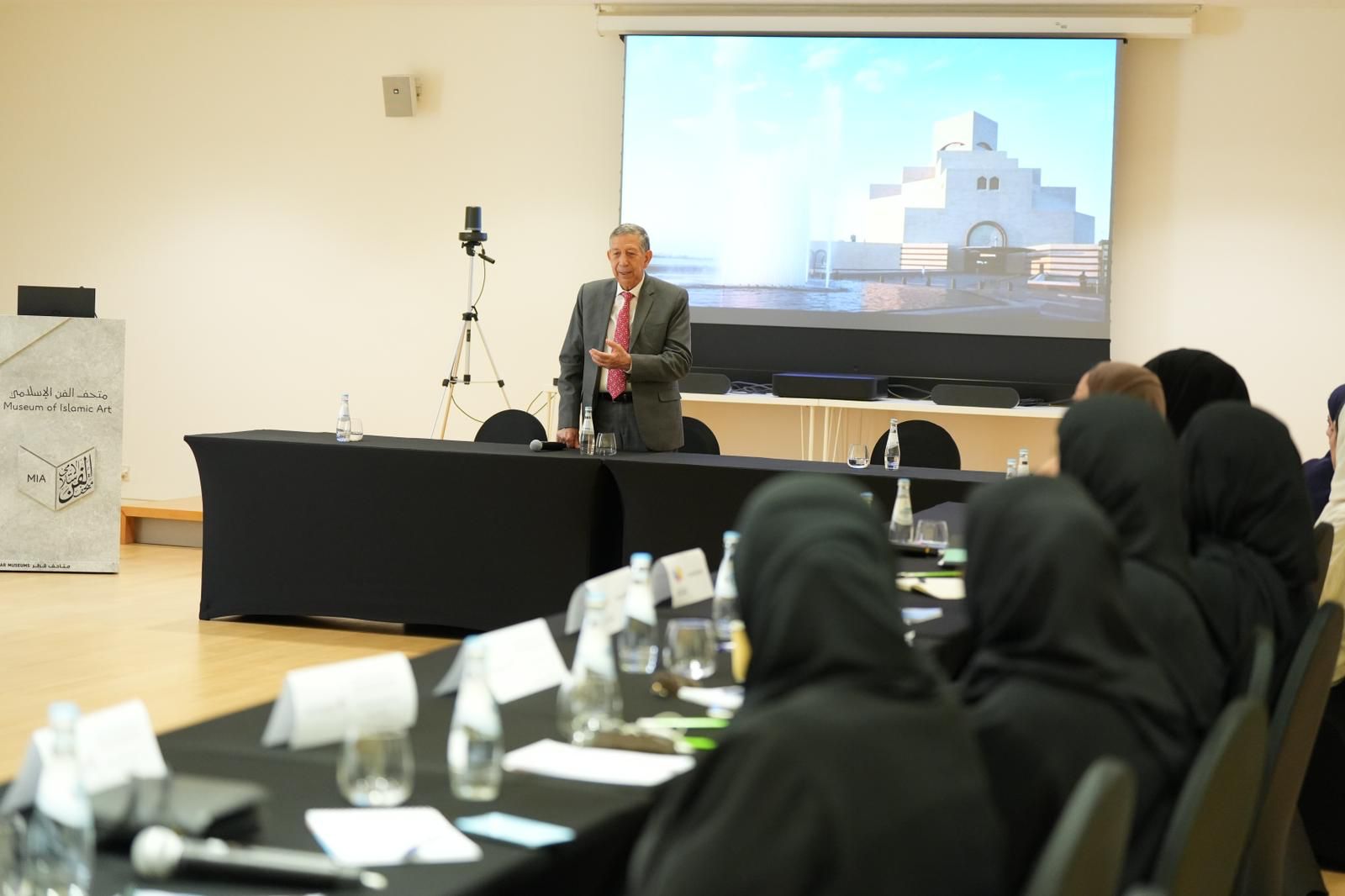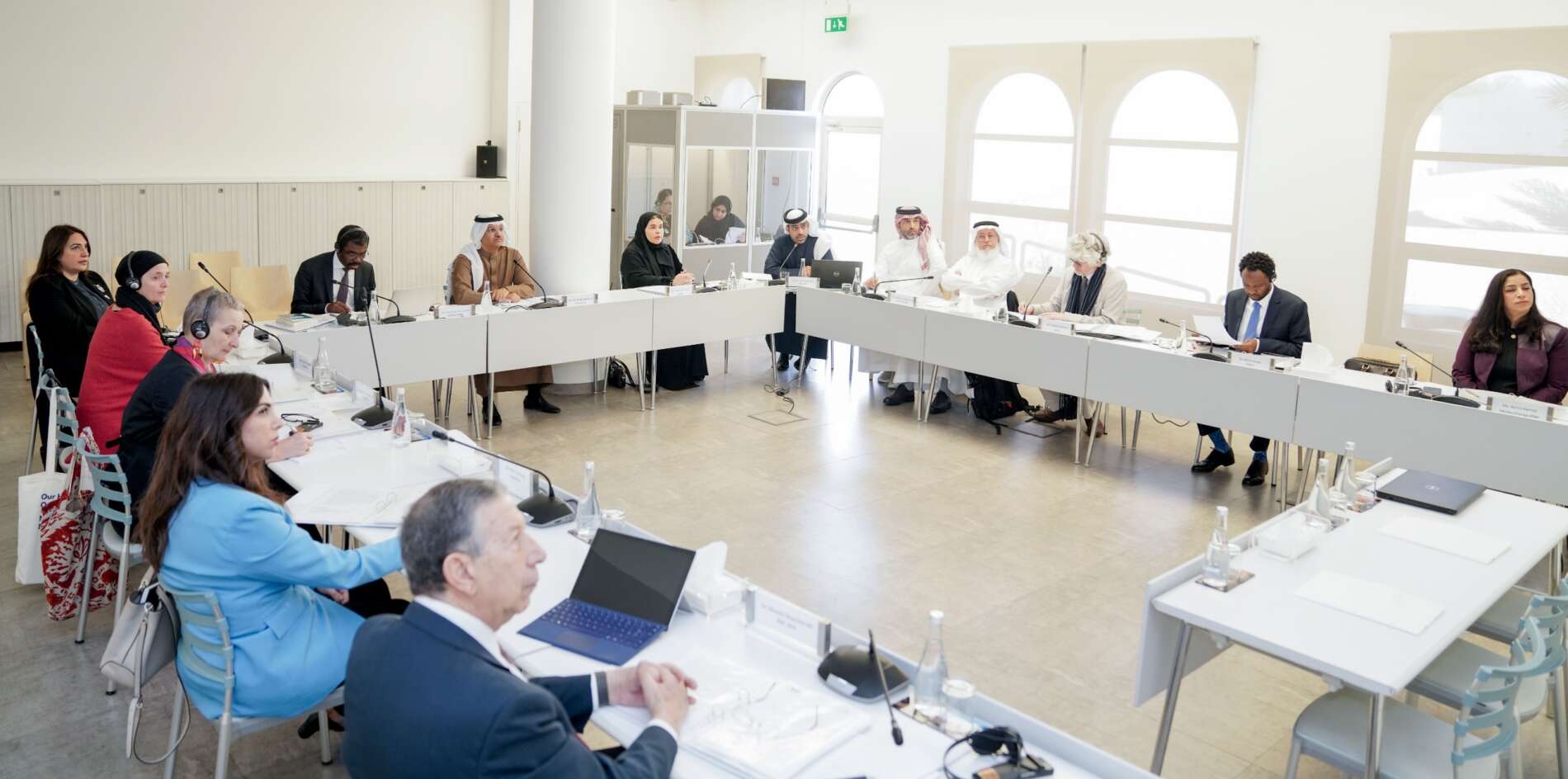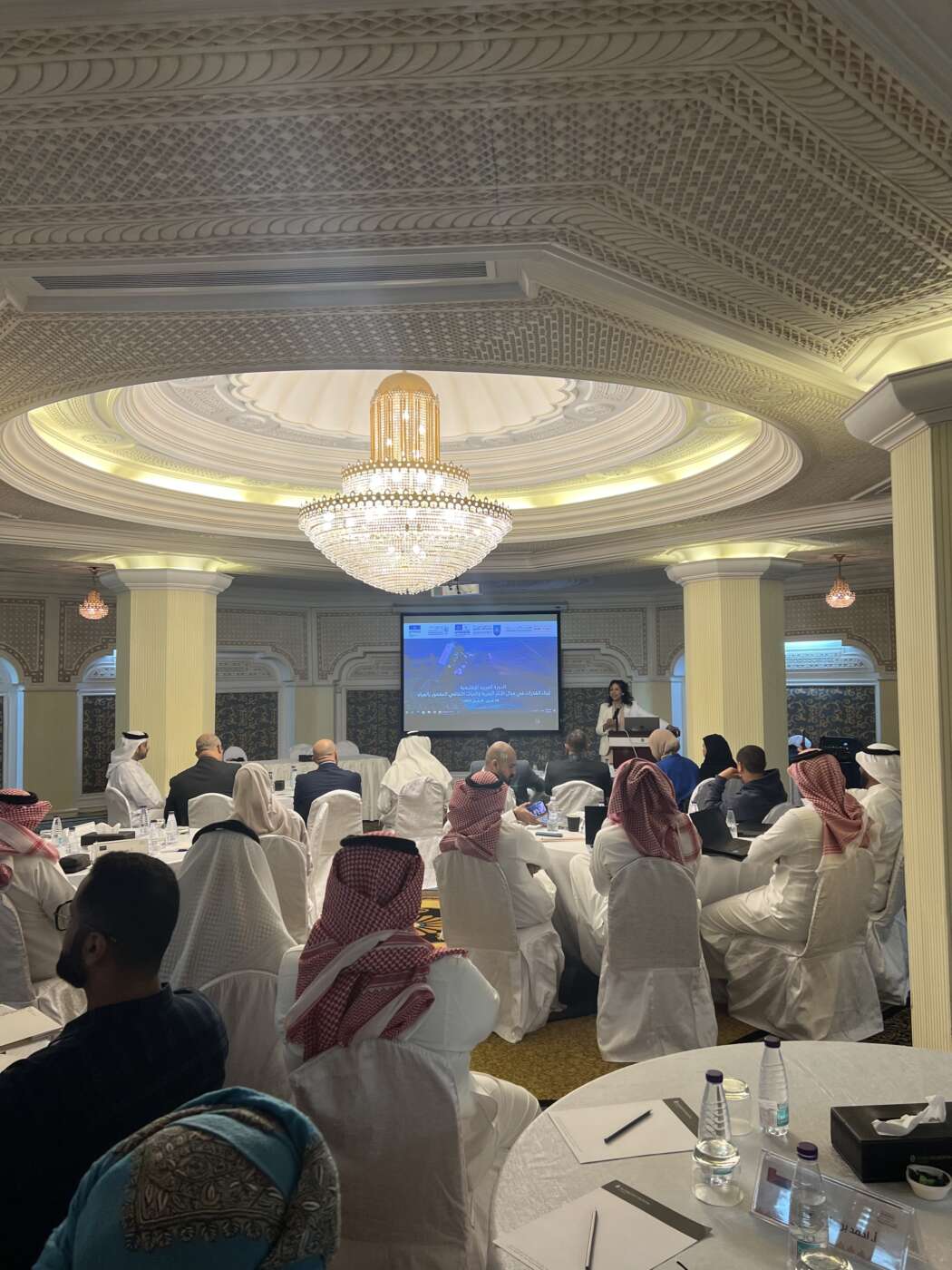
Oranisation of the Arab Regional Course for Capacity Building in the Field of Marine Archaeology and Underwater Cultural Heritage
The Arab Regional Course for Capacity Building in the Field of Marine Archaeology and Underwater Cultural Heritage commenced today, Sunday, 26 February 2023, in Jeddah, Kingdom of Saudi Arabia. This initiative is a collaborative effort between the Arab Regional Centre for World Heritage (ARC-WH), based in Manama, Kingdom of Bahrain, the Heritage Authority of the Saudi Ministry of Culture, and the UNESCO Chair in Underwater Cultural Heritage at the University of Alexandria.
This session is taking place amidst growing global interest in maritime archaeology and underwater cultural heritage, along with increasing risks to these sites from environmental changes and various human activities. The session, attended by a large number of experts and specialists in the field of archaeology from Saudi Arabia, Bahrain, Libya, Tunisia, Algeria, Palestine, Morocco, Lebanon, Oman, and Jordan, will continue until 9 March.
On this occasion, Dr. Heba Al-Aziz emphasized the significance of continuing regional cooperation among institutions concerned with the cultural heritage of Arab peoples. She highlighted that the Arab world is home to underwater archaeological treasures deserving global recognition. Dr. Al-Aziz commended the cooperation between the Arab Regional Centre, the Saudi Heritage Authority, the UNESCO Chair in Underwater Cultural Heritage at the University of Alexandria, and the UNESCO Office in Doha for making this important meeting a success, bringing together a large number of experts to explore a significant aspect of cultural heritage.
During the session, participants will be involved in a series of theoretical lectures and practical applications. They will be introduced to the development of maritime archaeology and learn about maritime sites and submerged cultural heritage in the Arab region. The session will also cover underwater cultural heritage from an international perspective. The attendees will learn about the history of human interaction with the sea, ancient shipbuilding techniques and their evolution, and maritime ethnography. Additionally, they will explore ways to manage and preserve underwater cultural heritage in light of natural disasters and human practices.
Practically, participants will use modern technological tools like two and three-dimensional archaeological surveys, data processing, GPS, and photographic and video imaging. Moreover, accompanied by professional trainers, they will dive into one of the submerged archaeological sites to train in underwater archaeological survey skills and techniques for searching and retrieving artifacts without compromising their safety.

